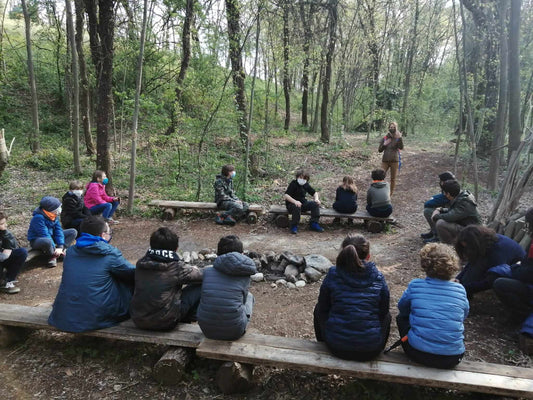
Essential Survival Skills for surviving offgrid
by Kyt Lyn Walken
Introduction
Hiking requires mental, physical and practical preparedness. It also involves sizing up situations and risks. Every scenario is unique and dynamic, especially in an emergency.
In an emergency scenario, you may face various hazards: changing weather conditions, predators, illness, etc.
Each one demands a specific plan that considers:
- risk analysis
- resources
- mindset and pragmatic approach to solve critical issues
- skills
- gear
In this article, we will focus on the essential survival skills you need to master when an emergency arises.
Surviving in the Outdoors
Surviving in the outdoors is not easy or simple. It is not enough to be an outdoor enthusiast for your whole life. There is a big difference between spending some weekends out for camping, hiking, climbing, hunting or whatever and mastering real skills that could save your life.
One thing is certain: the outdoors offers a variety of materials: wood, water, food, etc. The first challenge is to use them wisely without depleting what surrounds you. The second challenge is to assess the true level of your skills.
As the saying goes, “Use it or lose it”. You cannot rely on some abilities you learned during your Boy Scouts years and assume you are still good at them.
Without regular and systematic practice, you may forget some of them. Moreover, stress, anxiety, panic and fear may overwhelm you in a critical situation.
Don’t Let Blisters Slow You Down!
Discover the ultimate solution with ArmaSkin Anti-Blister Socks. Designed with advanced friction-reducing technology, these socks keep your feet dry, comfortable, and blister-free – no matter the challenge.
Shop NowThe benefits of being off grid are aligned with the natural environment:
- plenty of wood to make fire, build shelter and more
- availability of game
- access to water
- possibility to move and live undetected
- lower risk of encountering hostile people and situations
The drawbacks are mainly related to:
- limited or no access to modern devices you may need (GPS, mobile phones, etc.)
- difficulty or impossibility to find vehicles
- discomfort of being off grid due to predators, insects, exposure to the elements and so on
These are some of the most obvious challenges you may face.
Therefore, surviving in the great outdoors for a long time could be possible only if you are 100% ready to accept both sides of the coin. It may sound romantic, but are you fit for that? Be honest with yourself when asking this question, especially if you are out with your family.
Duties and responsibilities must prevail over some childish fantasies and illusions that have no real basis.
A physical and mental preparation could be achieved by spending as much time as we can in the wilderness, experiencing different weather conditions, pushing ourselves to the limit, testing our attitude and skills.
Without regular and systematic practice, you may forget some of them. Moreover, stress, anxiety, panic and fear may be overwhelming.
Essential Survival Skills
Now, let’s group the essential survival skills into macro categories.
Navigation
Bugging out in an area you are familiar with is obviously the most sensible option. Having already scouted a specific place can help you with:
- finding the right place to set up your shelter
- identifying the available resources
- bringing some items with you
- starting to build a shelter
But what if you need to rush into an unfamiliar context? In this case, a good, detailed map of the area is essential. Along with that, you need to be skilled at using a compass and setting reference points as you move.
Natural navigation and orientation are the first skills you need to learn and master.
Shelter
Once you find an ideal place to bug out, setting up a temporary or long-term shelter is your second priority. There is a lot to say on this topic.
 Making a shelter requires practical skills, like handling a blade correctly (knife, axe, saw, etc.) and making knots to make it sturdy, durable and suitable for:
Making a shelter requires practical skills, like handling a blade correctly (knife, axe, saw, etc.) and making knots to make it sturdy, durable and suitable for:
- safety
- heating
- comfort
- heating
Setting up a shelter goes hand in hand with heating, especially when the weather is bad. This means starting a fire by gathering the proper tinder and the right wood to burn and use as a deflector.
T here are several methods to start a fire, from using a ferro rod to friction: each one has its own challenges, depending on resources, humidity level, your physical and mental condition.
here are several methods to start a fire, from using a ferro rod to friction: each one has its own challenges, depending on resources, humidity level, your physical and mental condition.
Knowing all of them is good, but never underestimate the power of common sense: when you are tired, your performance may decline. The low level of calories, for example, may affect your success.
Nutrition
Gathering edible plants and berries is not as easy as it may seem. Just think about Christopher McCandless’s story. Making mistakes is very likely.
Therefore, it is wise to not only have a manual of local edible plants with you, containing clear photos (not sketches!) of the flora of a specific area, but also to do a toxicity test before eating any of them.
Collecting and purifying water is another important issue. You cannot survive a week out if you don’t know how to do that.
Hunting and fishing require the perfect and deep knowledge of the weapon you use (rifle, bow, spear, etc.) and, in addition to that, all the practical actions related to skinning, processing meat and preserving it.
Besides that, knowing how to track and how to approach game is an essential part of hunting. Without that, any attempt to hunt will be futile.
Therefore, tracking skills are useful to pursue your hunting goals, as well as to gather information from the terrain to live and move off grid while leaving minimal traces of your passage.
Self defense
Handling a weapon safely, knowing how to use and maintain it is often an underrated skill when bugging out.
Trouble can be just around the corner even if you are in the middle of nowhere. If humans are no longer a threat, predators may be: bears, mountain lions, you name it.
Having a firearm and ammo and taking care of them is one of the things you must consider when you bug out.
How to learn essential survival skills
Reading books and watching videos on YouTube are just good starting points, but you have to work on yourself and, even better, attend classes and be guided by professionals.
There are plenty of good survival schools all over the US, offering focused courses to teach you how to start a fire, how to build a shelter and more.
They will lead you into the right direction, giving you all the tools in order to make you learn and fix your mistakes in the proper way.
Be curious, ask questions, be eager to learn should be your credo.
Test your essential survival skills in the field
Once again, it is important to refresh your skills whenever you have the opportunity. Even more important, share them with the rest of your family. This is always a good way to go. Children often prove to be excellent learners as their mind is totally open to learning new things.
Sharing is not only caring, it is also consistent with growing together and helping each other for the greater good.
Plan some testing weekends in the field and try to simulate a bug out situation. This will be of tremendous help when an emergency situation may strike.
About the author: Kyt Lyn Walken
- Certified Wildlife Conservation Ranger at Conservation Ranger Operations Worldwide
- Official Representative & Instructor at Hull’s Tracking School
- Directora de Rastreo Humano por Dynamic Tracking (Spain)














